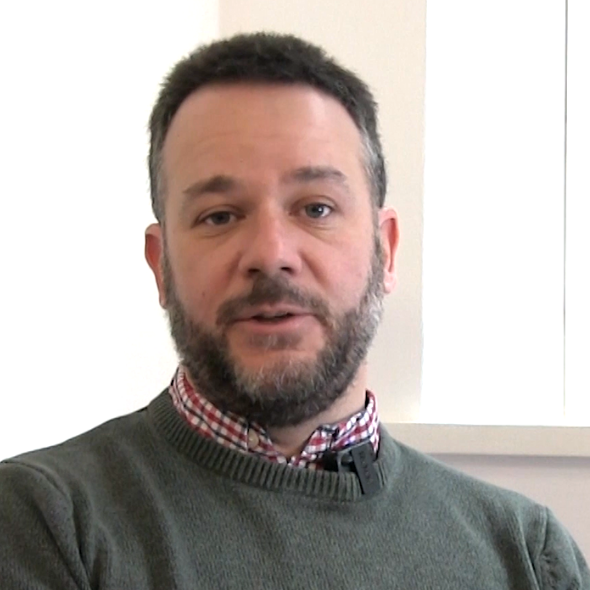Discover how the word apocalypse started out as a theological way of thinking with Dr Alastair Lockhart
Meet your lecturer
Alastair Lockhart works on the history of religion in the twentieth-century, and the relationship between psychology and religion. He is interested in the study of less well-known, and new, forms of religiosity – including ways of thinking that people might not consider “religious” in the first place – and how this gives insight into the ways we study more traditional and well-known ways of being religious.
Alastair is a Fellow and Director of Studies for Theology at Hughes Hall and editor of the Critical Dictionary of Apocalyptic and Millenarian Movements, an online encyclopaedia of secular and religious expressions of apocalyptic and millenarian thinking throughout history and across cultures.
Explore further
The Cambridge University Digital Library holds a 15th century Apocalypse picture book that is well worth a look. It is filled with images of the end of the world from the Book of Revelation. These books are very rare nowadays, as they were considered too popular to be worth passing down in families when they were first created.
This beautifully illustrated 14th century bible is from the University of Cambridge’s Digital Library. The link takes you to the section on Revelation. Can you find any other sections you might recognise?
This 18th century embroidered sampler of the Lord’s Prayer can be found in the Fitzwilliam Museum in Cambridge. The words ‘Thy Kingdom Come. Thy will be done in Earth As it is in Heaven’ are taken by some people to mean that the end of the world is coming soon. The young girl who embroidered this sampler in 1755 chose to surround with words with a flowing border of flowers. Why do you think she might have done that?
Corpus Christi College in Cambridge holds an apocalyptic manuscript written by a 13th century monk describing how the world will end in 1250 AD and what he did when his prophesy didn’t come true!
Famous scientist Sir Isaac Newton wrote some observations on the Prophesies of Daniel and the Apocalypse of St John.
A light-hearted article claiming that Cambridge is the best place in the UK to live if you want to survive an apocalypse.
Consider some questions
What does the word ‘revelation’ mean?
Which religions have "end times" beliefs?
Do all religions have “end times” beliefs?
Is it right to call Christianity an “apocalyptic religion”?
Compare any two religious traditions in terms of their beliefs about the end of times. What similarities and differences do they share?
Does is make sense to talk about recent environmental movements as “apocalyptic”?
Evaluate the statement “Those who claim to have special revelations are mistaken.”
Some people believe that the apocalypse will be a catastrophic punishment of sinners at the end of times, while others believe that the Kingdom of God has been steadily developing on earth since the time of Jesus. Give one argument for and against each of these two viewpoints.
What is the best way to live if you believe you will be judged by God at some point in the near future?
Guidance for teachers
Download the video transcript


